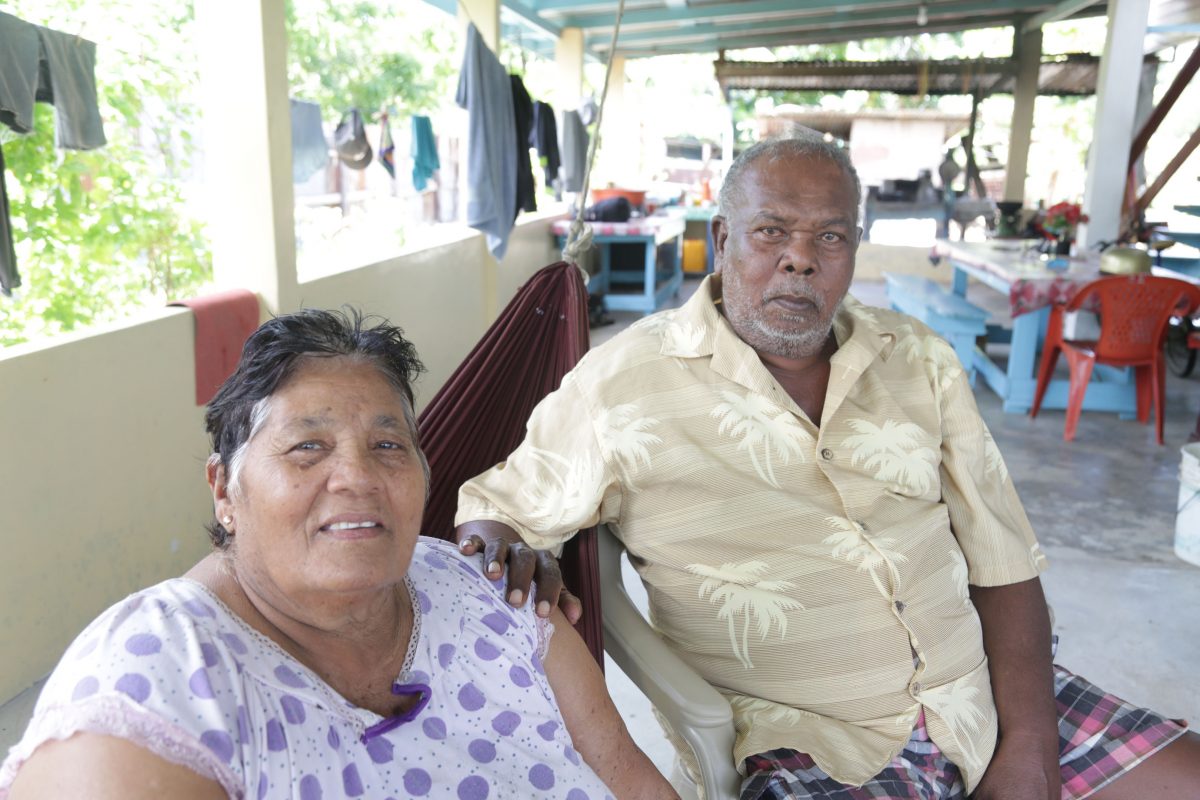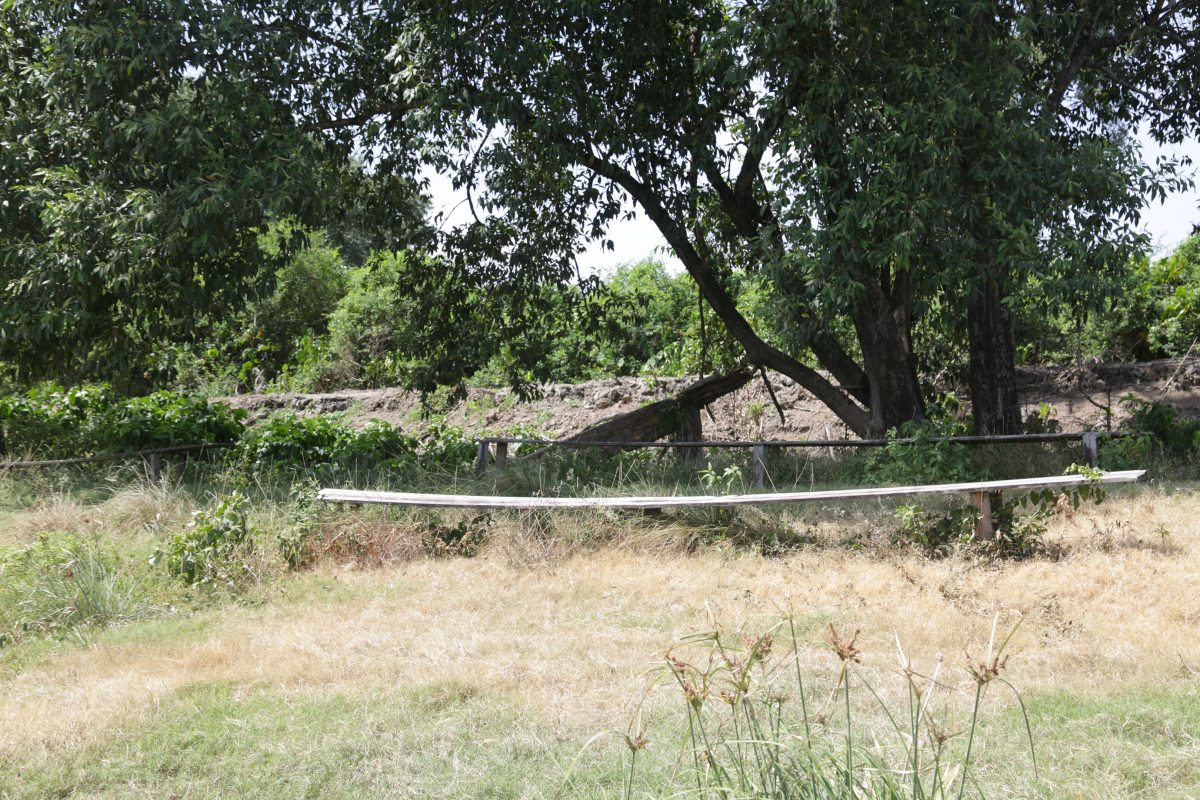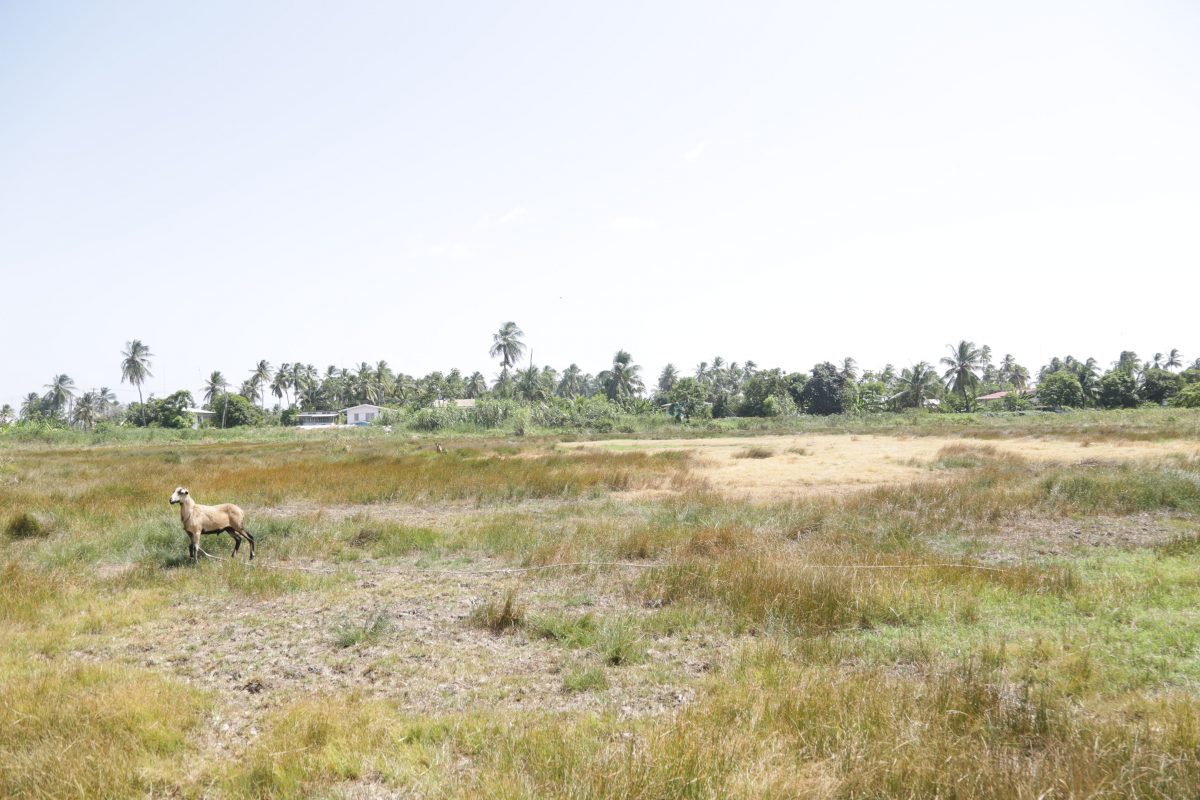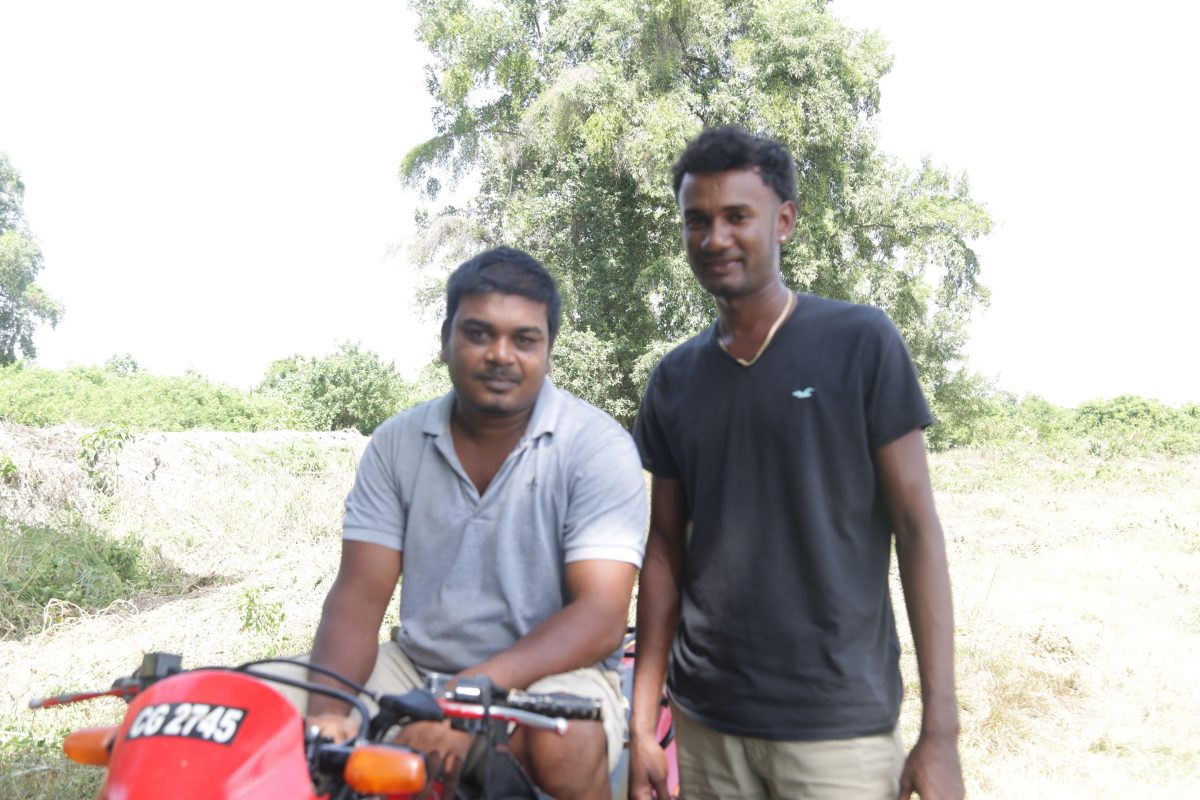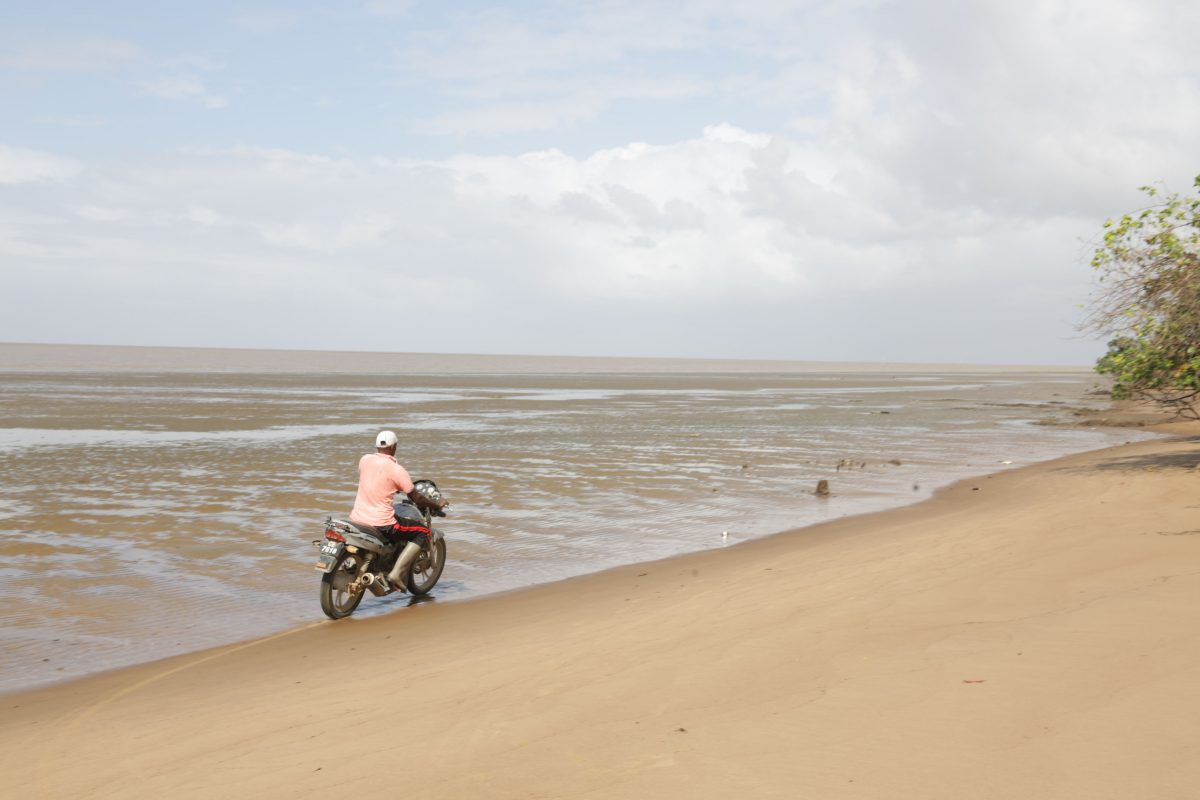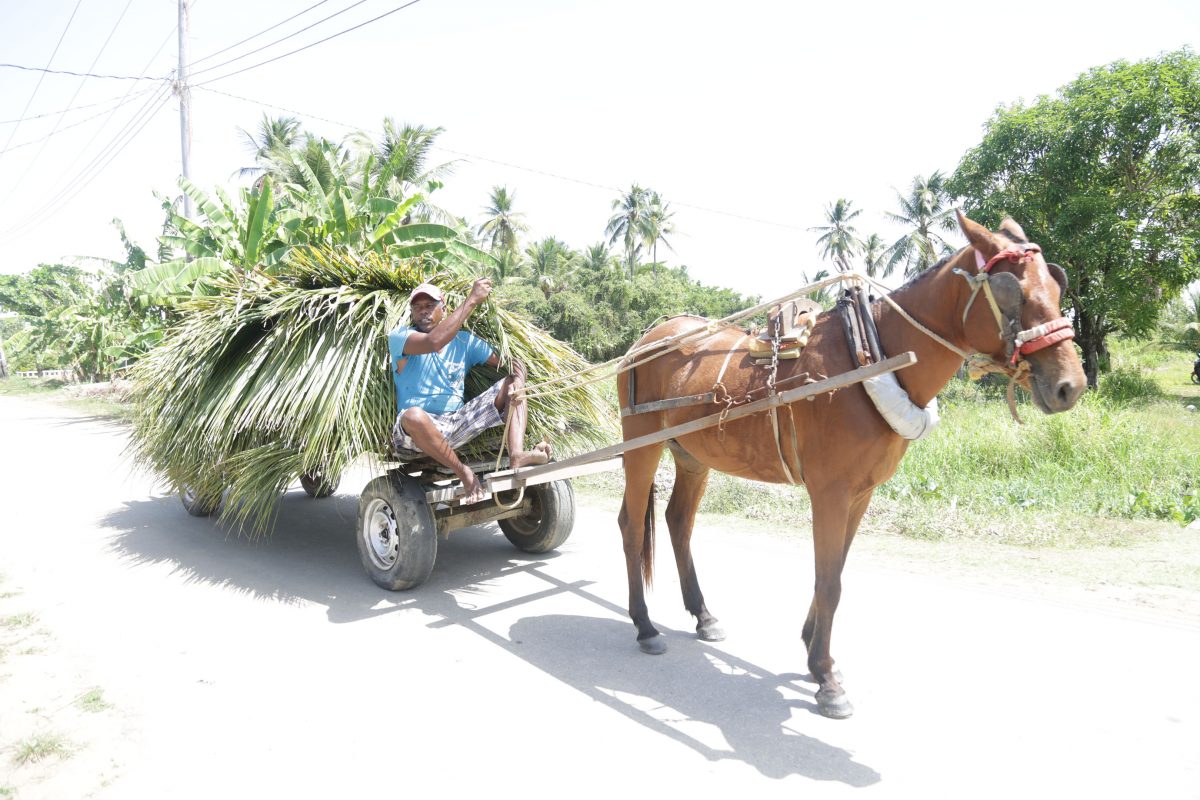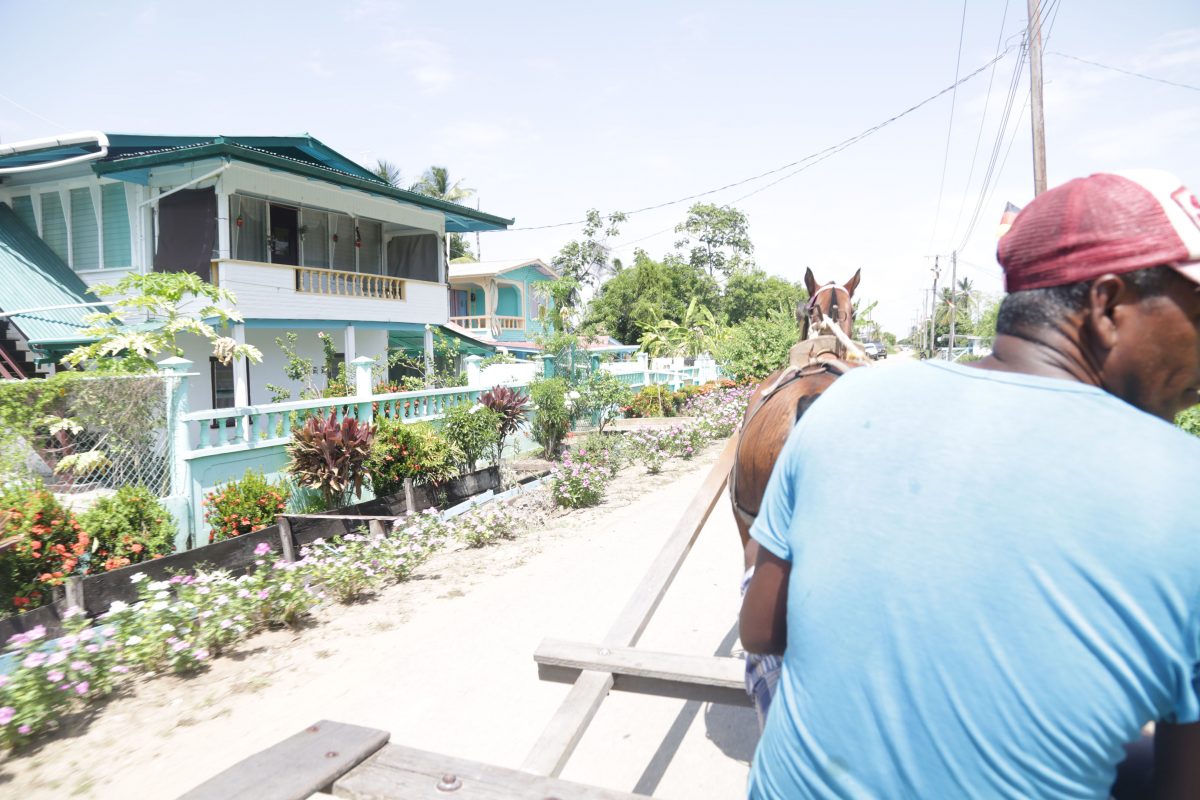Clairmont, a tiny village in Leguan, sits between Good Intent and Uniform. The residents depend on cash crop farming and fishing for their livelihood.
Though 20+ houses line the two sides of Clairmont, many of them are vacant as their owners have migrated. The village is mostly quiet, seemingly lulled by the breeze from the Essequibo River. There is a nice view of the houses across on Wakenaam Island. The only noises that disturb the quiet are motorcycles, the clip clop of a horse-drawn cart or a pressure cooker on a stove in someone’s kitchen.
Nandkishorie, called ‘Radhika’ sat in a hammock near a walker that separated her from her husband, Seeram, who sat close by in a chair. Behind them, their daughter-in-law scurried back and forth doing things in the kitchen.
Radhika is originally from Anna Catherina and Seeram from Good Intent. She was 17 years old in 1965, when she became the common-law wife of Seeram. They lived in Kingston, five villages away, before moving to Clairmont in 1990.
Radhika had a fall 11 years ago that led to her needing the walker. She complained too about pinched nerves. Before the fall, she was a vendor at Leonora Market for decades. She went every Friday, slept at her mother’s house and returned home on Saturday. She began selling when she was 23. Since her fall, her daughter-in-law has been selling at the market. However, with no close relative to sleep at on Friday nights, she sleeps in the market.
The family plants cash crops from where they get the vegetables they need. As I sat there, plants bearing long, red and green ‘tiger teeth’ peppers glistened in the sun. Most of the fish they eat come from the canals in the backdam and are caught with cast nets. At this point Radhika’s daughter-in-law (whose name was not mentioned) appeared with a tiny aluminium basin in which were two live hassars in some water. One of her sons had caught them earlier that day.
The daughter-in-law spoke of her difficulty with getting the ferry to and from the island.
“We really nah get the boat now,” she said. “It’s real hard to go with the speedboat; them charging you a lot of money. Sometimes me does got to pay $3,000 or $4,000 just to go across to Parika. $80 is the [fare for] the big boat and $100 for a sack or bag or tub, whatever you carrying you produce in but when you got to go with the speedboat them want nuff money and when you mek styles to pay them, them want get on bad.”
Having spent most of their lives in Kingston, their farm is still there. The ground, Seeram lamented, is cracked and needs proper irrigation for him to farm. Because of his age, the farm is overseen by his sons.
Seeram, who is also chairman of the Kent Sports Club in Clairmont, spoke of the village’s ball field, which is in dire need of weeding. According to the man, he had taken on the responsibility of doing so with his lawnmower, but it has been broken for some months now and the part required to fix it is difficult to come by. The Neighbourhood Democratic Council (NDC), he said, should have been maintaining the ground as it is state-owned. Cricket gear as well as the huge rope that marks the boundary line were all donated by persons who are based overseas. Seeram is hoping that the NDC can assist. Because of the current condition of the field, players are unable to practice. The cricket ground, dubbed Bundari Park, got its name from the ‘bundari bush’ that grew wild along the ground. Currently Bundari Park is a grassy jungle.
The ground, said to be the largest on the island, has only three benches for spectators to sit on. When it is being used, most onlookers are forced to stand. Aside from wanting a pavilion or two, Seeram wishes that a canteen can be constructed. The elderly man said that some years ago when Minister of Public Infrastructure David Patterson had visited the island, he had promised a pavilion, but nothing came of it. His family usually cooks for the home team and those visiting, including teams from abroad, and he is certain that a canteen would be put to good use. The facility also needs washrooms.
Seeram’s two grandsons are members of the Young Warriors, the island’s cricket team. Tulsiram and Tikaram Premnauth have been representing the island for some time now and the older brother, Tulsiram, has represented Guyana regionally.
“We have two of the best cricketers in this house,” Seeram boasted. “One is 25 years and one is 20. He never get a chance to be on Guyana team [Amazon Warriors] and he can do it. He went to Trinidad and the first match he mek a 150-something runs. For the entire series, he mek close to 11 centuries and he never get a chance.”
Radhika butted in to say that her
grandson has lots of huge trophies and showed-off a plaque he received after one of his games. Neither of the young men was at home as they were off playing in a game in another part of the island against Wakenaam.
Seeram said the state of the ground is preventing cricketers in the village and around from doing the best they can do. “The big one from small he used to get a bamboo stick and an awara seed and he used to bring it fuh me bowl he. One day he went over in the big yard, them call he. Them boys did playing hardball. He was small and me tell them ayo give this boy a batting leh me see. And the man start defend and play. A… fella seh, ‘That chap gon play cricket’, and ah fuh truth. He play with Chanderpaul son and all, and that bai can’t play he.”
As I was headed out, Seeram’s son was returning on his horse-drawn cart. He had used the cart to fetch coconut branches for a broom vendor. The man complained that things have gotten so hard on the island, that he along with many other persons depend on little jobs to get by. He then offered me a ride on his cart to check out Bundari Park.
Twenty-nine-year-old Marlon Narine, a member of the Young Warriors and a resident of Clairmont, pulled into Bundari Park on his motorcycle along with his friend ‘Sonno’, who also rode a motorcycle. Narine has been on the cricket team for over a decade and Bundari Park is the ground he practises on whenever necessary, but now all practice has stopped. The other ground he practises on is the one in Enterprise, situated some four miles away.
“We want lil maintenance on the ground. Once you send people to assist us, we will turn up to help clean up,” the mechanic said. He is employed at Doobay Rice Mill in Doornhag. On days he does not have work at the mill, Narine finds work to do on the farm. Employment, he said, is a big issue on the island and he has friends he grew up with who left the island for this reason.
The plantain factory in Blenheim, which was constructed under the previous administration, has never functioned. It was said that the building has no electricity and should be functioning as Leguan produces enough plantain that could be turned into products like plantain chips and plantain porridge. Such a factory would create many jobs, he noted. The island is said to produce an average of 10,000 pounds of plantains a week. The factory, it was said, could even produce sweet potato chips.
Manager of Bundari Ground Ronald Persaud has been serving in this capacity for six years. Persaud’s biggest wish is for the cricket ground to be fixed for the youngsters of Clairmont. He said he and several other persons borrow contractor Rocky Khan’s tractor and another man’s tractor to clear and clean Bundari Park. He went outside of Clairmont for dirt to build the pitch properly. Many days, he said, he had nothing to eat until he returned home at night.
“Meh tek ah long board and drag it on the pitch until it level. Me guh and borrow a tractor from a man in Doornhag and abbi nah pay that man a dollar money,” Persaud said. “This is the government ground. This is not private ground and I don’t see why they got this ground in a state like this. The NDC is a problem. First thing them guh say is that the slasher isn’t good. Sometimes they take a while just to give a private person who doing the job some diesel. This was one of the best grounds it had in the whole of Leguan. Hmmm! Negligence!”
Speaking of life in Clairmont, the man said that people live well with each other and mentioned that while he belongs to the Islamic faith, his neighbours on both sides of him are Christians and Hindus and they get along just fine.
A normal day finds him repairing bicycles and fishing. His earlier life, he said, found him working in different parts in the interior, but today he plans on spending the rest of his life in Clairmont, working and trying to get facilities in place for the young people of his village.
